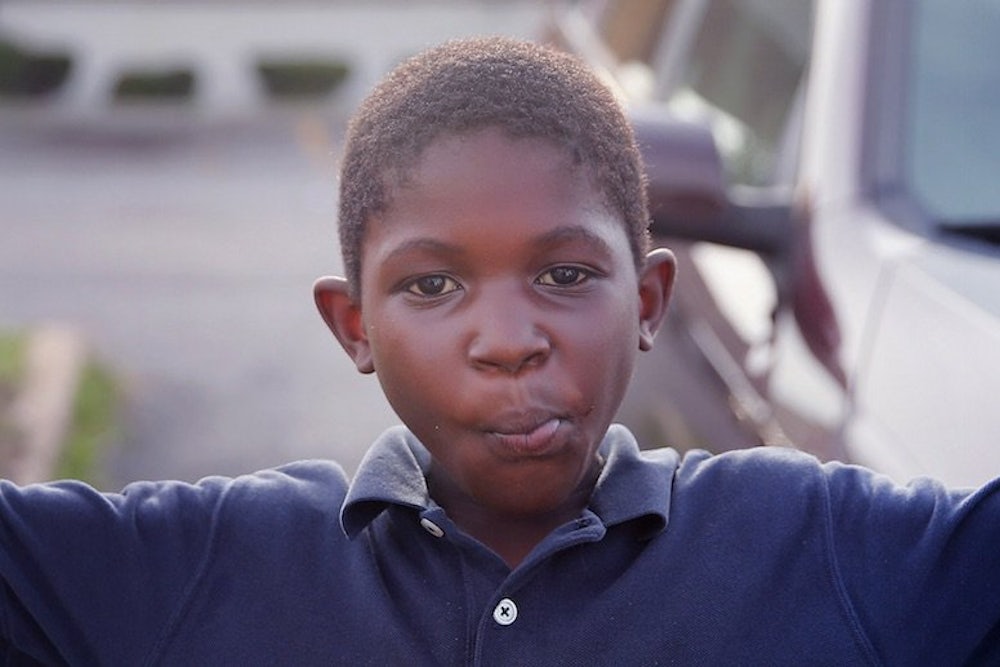Some 70 years ago, the Supreme Court heard a challenge to the federal statute that was used to convict three officers in the deadly beating of Robert Hall, a “young negro” from Georgia who had been accused of the crime of stealing a tire. The officers were accused of bludgeoning him to death in the course of subduing him—they claimed that he had “reached for a gun” and “used insulting language,” which ostensibly meant that he posed a threat meriting the use of deadly force. But Hall’s bad behavior hadn’t mattered to prosecutors: The officers were indicted, tried, and convicted for violating his civil rights. In upholding the law, Justice William Douglas wrote that the case represented “a shocking and revolting episode in law enforcement.”
That could be said of the incidents in Ferguson, too. The Department of Justice invoked the same civil-rights law to investigate officer Darren Wilson for the killing of Michael Brown. The only difference is that Wilson—unlike those three officers—will never face a trial. The sole purpose of the DOJ report released earlier this month was to provide a rationale for not prosecuting the officer: that, in its view, the department could not prove that Wilson took Brown’s life without due process of law and thus violated his civil rights; that DOJ could not show to a jury that Wilson intentionally shot Brown for some unreasonable, malignant purpose other than to defend himself, because he was scared.
These conclusions carry no force of law. The separate report on the abuses by the Ferguson Police Department does—that one can lead to meaningful enforcement in federal court. But the decision not to prosecute Wilson, in technical terms, amounts to no more than an internal memorandum from junior prosecutors to Attorney General Eric Holder on whether charges were advisable. The end result was entirely discretionary.
The Washington Post’s Jonathan Capehart saw the report as much more than that. In no uncertain terms, he took on the role of judge and jury, reviewed the facts anew, and concluded that one of the rallying cries of Ferguson, “Hands up, don’t shoot,” was built on a lie. Speaking to NPR’s Melissa Block, Capehart later said his mea culpa was the “hardest piece” he’d ever written—that it made him “ill” to read in “black and white” about the altercation between Brown and Wilson.
In his piece, this falling of the scales sounded more like concern-trolling about Brown and the movement. “We must never allow ourselves to march under the banner of a false narrative on behalf of someone who would otherwise offend our sense of right and wrong,” Capehart said. “And when we discover that we have, we must acknowledge it, admit our error and keep on marching.”
Capehart’s admission “stumped” supporters of the #BlackLivesMatter movement and delighted critics, who pounced on Capehart’s contrition to pontificate about something that, deep down, they’d known all along. The columnist conceded as much to Block when he said he was “late to the party” of naysayers. But he made no effort to defend his “lie” claim, choosing instead to defend his cred as a journalist who bases his writings on facts. Facts that have never been tested in the crucible of a courtroom, either state or federal. Facts that, to this day, have only been weighed by prosecutors. Facts that, until now, are yet to meet any kind of adversarial process, rules of evidence, or zealous defense advocacy.
DeRay McKesson, a prominent Ferguson activist, understood the DOJ report in ways Capehart couldn’t:
You know how I feel on the DOJ report re: the killing of Mike Brown? I want a trial. That's how I feel. Let's see the conclusion post-trial.
—
deray
The DOJ report was rife with legal conclusions rooted in constitutional precedents that have developed over decades, including that old 1945 case. But it was also a pragmatic report—an acknowledgment that the totality of the facts and the law counseled against prosecuting Wilson. That it would be foolish to go to trial, risk an acquittal, and cause more pain to Brown’s family, let alone a backlash against Holder—who can’t seem to get a break—for seeking a prosecution against all odds. If there’s a shining example of prosecutorial discretion, the DOJ report is it.
But the report does not equal justice. It is largely advisory. It can’t be challenged anywhere. And it ultimately proves nothing about the Ferguson case or its larger meaning in an ongoing national movement. The Supreme Court or a trial court may never get to address Ferguson, but everything about it will continue to be, to borrow Justice Douglas’ words, “a shocking and revolting episode in law enforcement.” Because Ferguson stands for that and so much more, protesters have every right to keep on marching, with their hands up, for as long as there’s neither justice nor peace.
